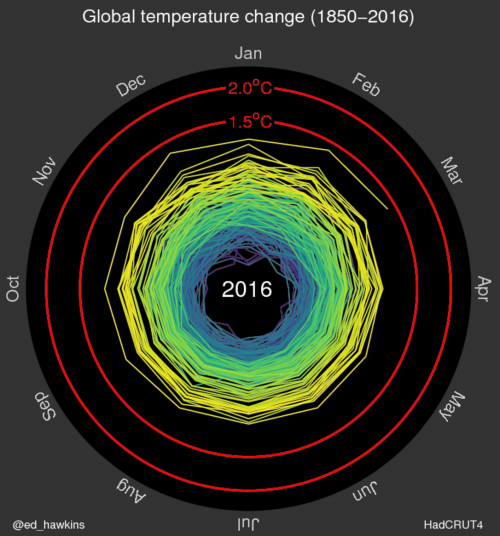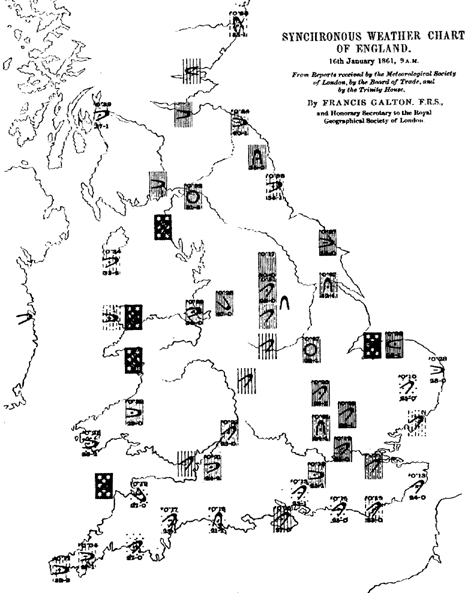

Have you seen the climate spiral?
Photo: The picture is actually an animation, showing global temperature change since 1850.Source: Ed Hawkins, ClimateLabBook
Climate scientist, Ed Hawkins from the University of Reading has produced a revolutionary way to illustrate global warming over the past 160 years. Ed's graphic's has been retweeted more than 15,000 times, and now Jay Alder, from the USGS has stretched the the spiral out to model data out to 2100.
What's quickly apparent, is that we're very nearly past the 1.5C threshold - a temperature increase that will result in the flooding of many small island nations in the Pacific. Events that caused a dramatic change in temperature include the 1877-78 strong El Nino event, causing a sudden increased warming of global temperatures. Between 1880 - 1910, there is actually a small amount of cooling, partially due to volcanic eruptions. Back in the 20th century, from 1910 - 1940, the warming is attributed partly due to a small increase in solar output and natural variability, combined with the warming due to recovery from volcanic eruptions. The period covering the 1950s - 1970s does not show too much variability, as cooling sulphate aerosols mask the greenhouse gas warming. From 1980 to the present day there has been strong warming, with temperatures pushed higher in 1998 and 2016 due to strong El Nino events.
Looking to the future, the USGS's updated animation models that by 2040, Earth's global temperatures will be 2C warmer compared to pre-industrial levels - a "safe" threshold the world agreed we should not exceed at COP21 in Paris last year.
So, are temperatures ‘spiralling out of control’? No - not by themselves. Humans are largely responsible for past warming so we have control over what happens next.
View Ed Hawkins's animation here: http://www.climate-lab-book.ac.uk/2016/spiralling-global-temperatures/
View Jay Alder's extended animation here: https://www.usgs.gov/media/images/simulated-global-temperature-change-0




